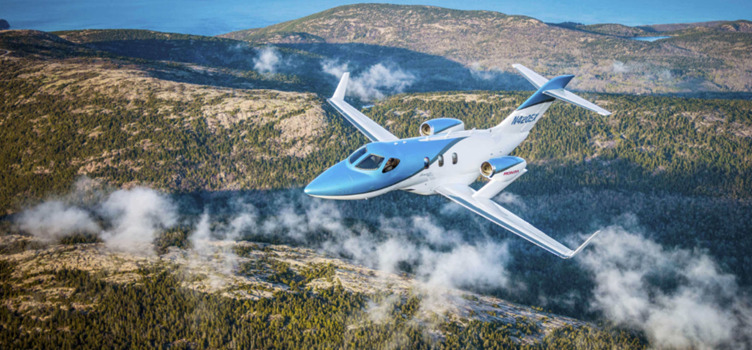Jet It failure is not the start of a trend

Fractional operator Jet It’s decision to stop flying is sad. But we should not read too much into it. It is not the start of a trend.
Two years ago – when demand roared back after Covid – lots of people wanted to be in the business of operating aircraft. In the past few weeks, the mood has changed completely. Some are predicting multiple failures. We are in danger of talking ourselves into a business aviation downturn. Only customers have the right to do that.
Headed by Glenn Gonzales, a former HondaJet salesperson, Jet It was the 14th largest US operator, according to Argus International. It grew quickly with a fractional programme that looked almost too good to be true. Fractional owners paid $1,600 an hour to fly in their aircraft. And that included fuel. The company aimed to make money from chartering out unused aircraft but this could not cover the losses it made flying owners – especially when it needed to charter third party aircraft to meet owner requests. This became worse when fuel prices shot up last year.
“This was bound to happen. Jet It’s business model was flawed from the beginning,” Craig Fuller, CEO, FLYING Media Group and a Jet It owner told CJI (FLYING has great coverage of Jet It here). “They didn’t understand the unit economics of their business and lost money on every flight they took with fractional owners. This could only have happened in the backdrop of zero interest rates and free money. Those days are over with Jet It a casualty.”
One former Jet It employee agrees: “This was written in the book. The business model fundamentally did not work.”
Jet It grounded its fleet of 21 HondaJets on May 19th. At first, it said it was doing this because of safety issues with HondaJet aircraft – although it also went on to ground its Phenom 100 aircraft. On May 24th, 2023, Gonzalez told owners that they would no longer operate their aircraft.
“I think the thing that most owners, including myself, hate about the situation is how Glenn Gonzalez tried to pin the blame on HondaJet and never took responsibility himself,” says Fuller. “I am a founder, I have had businesses that have not worked out. No one should begrudge him for that. But having little regard for the predicament we are all in is not right.” We did contact Gonzalez for comment.
The fall of Jet It is an opportunity for competitors like Volato and Jet Token. But they are having to explain to owners that they will need to pay more to fly. Volato charges $3,450 an hour without fuel.
“We are getting a lot of interest from former Jet It owners,” says Matt Liotta, CEO, Volato. “But Jet It’s failure isn’t beneficial for the industry. We need to avoid causing doubts about whether this is an issue intrinsic to their business or if it’s an overarching issue with all fractional businesses – unless, of course, they’re owned by Warren Buffett.”
Fuller is pragmatic. “The owners that I’ve met are all determined to make things happen. I’ve been impressed with how fast everyone has rallied around a plan and have executed on it. We have already had an offer to buy our aircraft and the plane is currently in a pre-buy inspection. Everyone is motivated to resolve things asap. I think everyone is disappointed Jet It didn’t work out, as it was a great deal for owners,” he says. “We are, however, happy that we own the actual aircraft and not pre-purchased time on a membership programme that Jet It could have burned through and left us in line as a creditor.”
Charter brokers who had booked trips have also been hit. “Jet It owes us $9,698.97 for a flight paid for but never flown. They were talking but are now radio-silent on us,” claims Yann-Guillaume Jaccard, CEO and co-founder, Simply Jet.
Jet It has not stopped flying because of a sudden drop in demand. In the past few weeks, we have seen panic that Wheels Up made a loss even though it had forecasted this and is not aiming to a profit until 2024. And we have been told that Vista Global has debt, the week after it issued a $500m bond. Charter demand may be falling slightly compared with 2022 but it is still a strong market.
“There are macro issues hitting business aviation. But we need to be careful that we don’t talk ourselves into the recession. Operating aircraft is still a good business. We’ve been talking about a coming recession for nine months and it still isn’t here,” says Liotta.
He adds: “It’s incorrect to assume that all aviation businesses have to be loss making. It’s crucial not to allow the whole industry to be tarnished by the strategies of a few who opt to offer their services below market rates.” Read more about the impact of Jet It’s suspension of services here.
This is from Corporate Jet Investor’s One Minute Week email – you can sign up for free here
Subscribe to our free newsletter
For more opinions from Corporate Jet Investor, subscribe to our One Minute Week newsletter.








